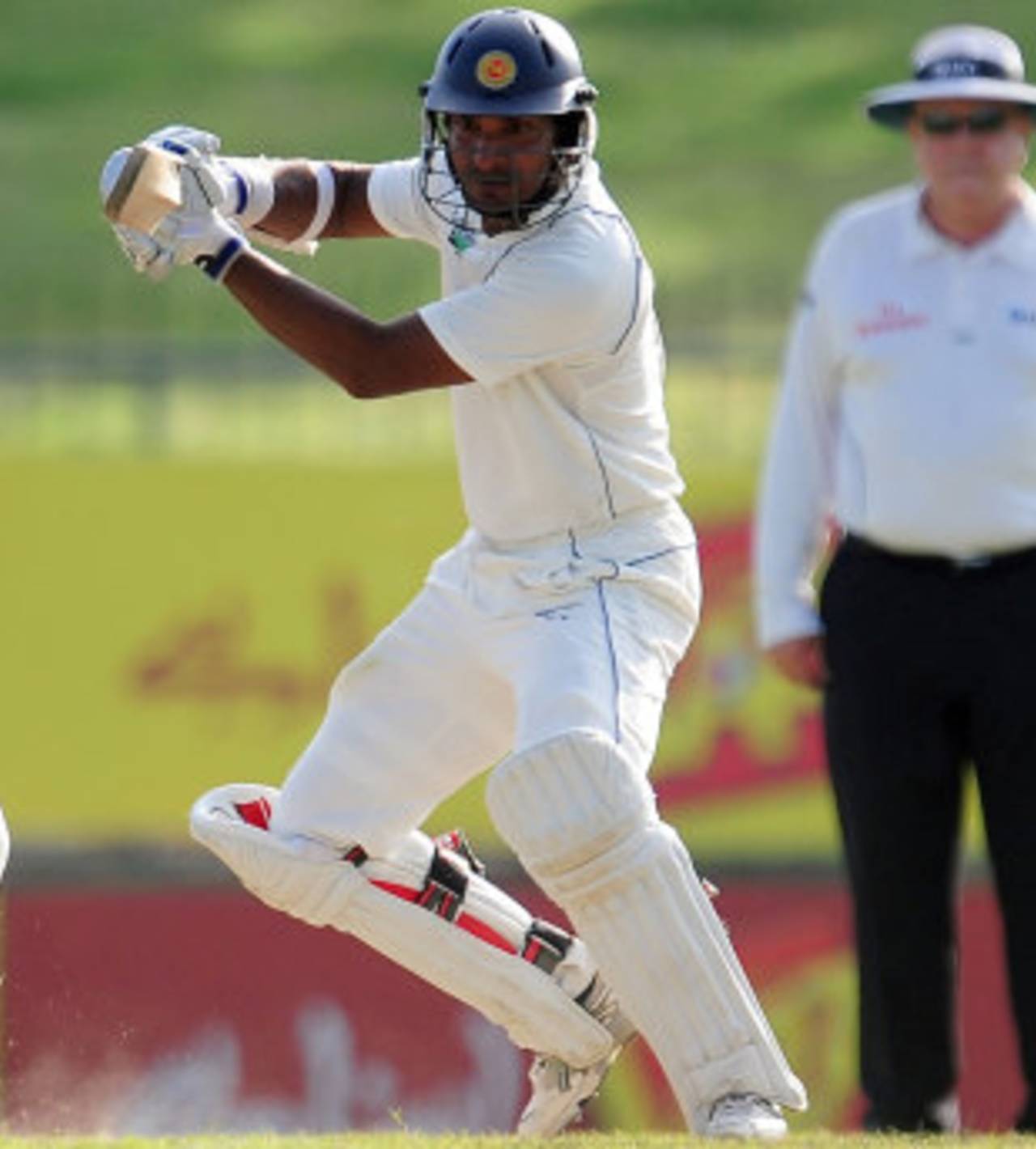When
Kumar Sangakkara strides into the hubbub of Test cricket at the MCG on Boxing Day, he may breathe in the moment a second longer than the others who take the field. He is the keenest student of the game in the Sri Lanka dressing room and, perhaps in that pursuit, his thirst is unparalleled among current international players.
Others have spoken of not being overawed by the occasion, but Sangakkara will not allow this experience to slip by so casually. It has taken him 12 years at the top level, 30 Test centuries and countless weeks as the game's premier batsman before he could take guard on cricket's biggest stage. And the chance to let 158 years of passion, grandeur and tradition wash over him will be irresistible.
He begins the match requiring 40 more runs to reach 10,000 Test runs and there is perhaps no more fitting venue in the world on which he should confirm himself as one of cricket's modern greats than Australia's most iconic ground. Sangakkara has often spoken highly of the "Australian way of doing things", particularly earlier in his career, and he has adopted ideals that abound most ostensibly in Australia: iron-clad resolve, an unrelenting emphasis on training and technique, and an uncompromising will to succeed.
At the beginning of his career, it was not uncommon to hear Sangakkara rattle away in the batsman's ear from behind the stumps, almost like a Sri Lankan Ian Healy. He has mellowed since, by his own admission, but his smug speech to Shaun Pollock in the Super Eights of the 2003 World Cup remains one of cricket's most memorable recent sledges, particularly outside an Ashes series. Men have sought to shake him by hurling words at him over the years, but they have quickly recognised the immutability of his focus, and opponents no longer bother.
Even among his teammates, Sangakkara will not claim to be the most gifted batsman.
Mahela Jayawardene was a prodigy - almost a household name in Sri Lanka years before he made his debut -and the artistry he brings to the crease can only be innate. Sangakkara's success has not been so propelled by ability. Labour has been the sacrifice he lay at batting's altar, and he has been rewarded with a richer technique and record that many would have suspected him capable of when he first arrived in international cricket. As a senior, he now often has the privilege of facing net bowlers at their freshest at training, but even after his stint he hovers around in all his gear, scavenging a few overs here and there until the bowlers are sick of seeing his defence. In Jayawardene's own words, "Sanga bats and bats, and bats and bats."
As captain, he brought a ruthless edge to Sri Lanka that the side had not known before. Never shy of showing displeasure in his team when they fell short of his expectations, and a pest to umpires whom he felt had wronged Sri Lanka, Sangakkara would exhaust every avenue that might bring his side an advantage.
During in an ODI in Dambulla, Sohail Tanvir scampered an overthrow that had rebounded unintentionally off his foot - a single which he was entirely entitled to take. In a flash, Sangakkara was in the batsman's face, arguing furiously that the run should never have been attempted. Eventually Tanvir cracked and called his partner back. Sangakkara might have let slip a smile as he walked back to his mark behind the stumps.
Sangakkara is not always counted in batting's modern pantheon, but few arguments against his greatness can survive the torrent of statistics he has stockpiled in the past decade. He has played as a specialist batsman for well over half his career and averages 67.08 in those 66 Tests. He has hundreds against every Test team, and everywhere but in the West Indies - an anomaly he may no longer put right, after Sri Lanka's two Tests scheduled there next year were further pushed to the future. He has eight double hundreds, fewer only than Don Bradman and Brian Lara, and if he scores 40 in the first innings in Melbourne, he will become the joint fastest man to 10,000 runs, alongside Lara and Sachin Tendulkar. If he gets there in the second innings, he will be on par with Ricky Ponting. This is no trifling company. Like each of those men, he is driven by personal accomplishment and has unremittingly pursued the extraordinary.
"If you're a batsman, 10,000 runs is that separation between a good batsman and one who will be remembered a bit more than the rest," he said in the lead up to the Boxing Day Test.
"It's really good to be almost there. There's no use of saying that you don't think of milestones. If you don't think of centuries, that's what you should be thinking of because that's what you want to do as a batsman, just like if you are a bowler, you want to take 300 wickets. Hopefully I will get beyond 10,000 as well."
Sangakkara might trade those 40 runs for a maiden Sri Lanka victory at the MCG, but the visitors cannot afford for him to have a bad game if they are to level with Australia. He had come off a lean series against New Zealand, but he ground out a difficult fifty in
Hobart and, though his batting does not live and die on confidence, he will be glad to have shaken the poor trot. He is finally playing in one of cricket's most iconic fixtures, and if he can hit his best form there, perhaps he will have the universal acclaim he deserves.
Andrew Fernando is ESPNcricinfo's Sri Lanka correspondent
